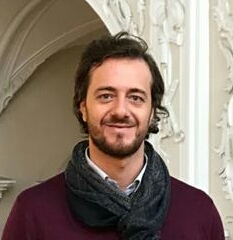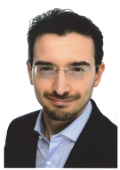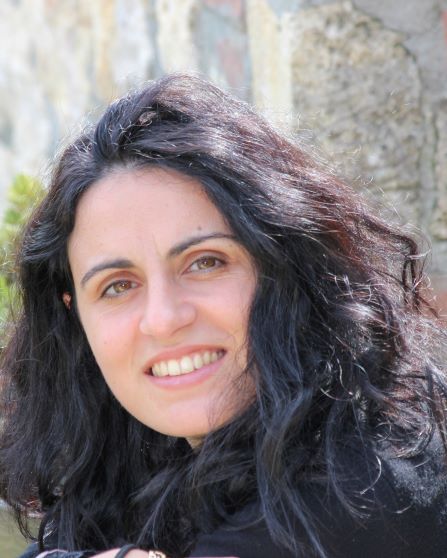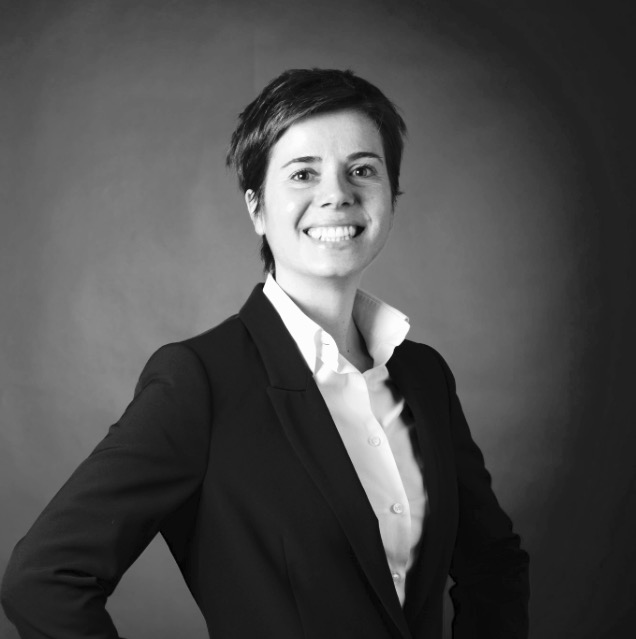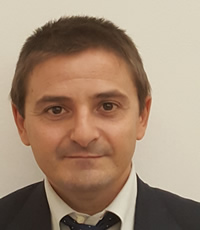Studying at the University of Verona
Here you can find information on the organisational aspects of the Programme, lecture timetables, learning activities and useful contact details for your time at the University, from enrolment to graduation.
Academic calendar
The academic calendar shows the deadlines and scheduled events that are relevant to students, teaching and technical-administrative staff of the University. Public holidays and University closures are also indicated. The academic year normally begins on 1 October each year and ends on 30 September of the following year.
Course calendar
The Academic Calendar sets out the degree programme lecture and exam timetables, as well as the relevant university closure dates..
| Period | From | To |
|---|---|---|
| Periodo generico | Oct 1, 2022 | May 31, 2023 |
| Primo semestre (lauree magistrali) | Oct 3, 2022 | Dec 23, 2022 |
| Secondo semestre (lauree magistrali) | Feb 20, 2023 | May 19, 2023 |
| Session | From | To |
|---|---|---|
| Sessione invernale (lauree magistrali) | Jan 9, 2023 | Feb 17, 2023 |
| Sessione estiva (lauree magistrali) | May 22, 2023 | Jul 7, 2023 |
| Sessione autunnale (lauree magistrali) | Aug 28, 2023 | Sep 22, 2023 |
| Session | From | To |
|---|---|---|
| Sessione autunnale | Dec 5, 2022 | Dec 7, 2022 |
| Sessione straordinaria riservata MS e MCI | Feb 24, 2023 | Feb 24, 2023 |
| Sessione invernale | Apr 4, 2023 | Apr 6, 2023 |
| Sessione estiva | Sep 5, 2023 | Sep 7, 2023 |
Exam calendar
Exam dates and rounds are managed by the relevant Economics Teaching and Student Services Unit.
To view all the exam sessions available, please use the Exam dashboard on ESSE3.
If you forgot your login details or have problems logging in, please contact the relevant IT HelpDesk, or check the login details recovery web page.
Should you have any doubts or questions, please check the Enrollment FAQs
Academic staff
 tomas.chiaramonte@univr.it
tomas.chiaramonte@univr.it
 martina.menon@univr.it
martina.menon@univr.it
 giovanni.righetti@univr.it
giovanni.righetti@univr.it
 giovanni.sandrini@univr.it
giovanni.sandrini@univr.it
 alessio.sartore@univr.it
alessio.sartore@univr.it
Study Plan
The Study Plan includes all modules, teaching and learning activities that each student will need to undertake during their time at the University.
Please select your Study Plan based on your enrollment year.
1° Year
| Modules | Credits | TAF | SSD |
|---|
2° Year activated in the A.Y. 2023/2024
| Modules | Credits | TAF | SSD |
|---|
| Modules | Credits | TAF | SSD |
|---|
| Modules | Credits | TAF | SSD |
|---|
| Modules | Credits | TAF | SSD |
|---|
Legend | Type of training activity (TTA)
TAF (Type of Educational Activity) All courses and activities are classified into different types of educational activities, indicated by a letter.
Type D and Type F activities
SOFT SKILLS
Find out more about the Soft Skills courses for Univr students provided by the University's Teaching and Learning Centre: https://talc.univr.it/it/competenze-trasversali
CONTAMINATION LAB
The Contamination Lab Verona (CLab Verona) is an experiential course with modules on innovation and enterprise culture that offers the opportunity to work in teams with students from all areas to solve challenges set by companies and organisations.
Upon completion of a CLab, students will be entitled to receive 6 CFU (D- or F-type credits).
Find out more: https://www.univr.it/clabverona
PLEASE NOTE: In order to be admitted to any teaching activities, including those of your choice, you must be enrolled in the academic year in which the activities in question are offered. Students who are about to graduate in the December and April sessions are therefore advised NOT to undertake extracurricular activities in the new academic year in which they are not enrolled, as these graduation sessions are valid for students enrolled in the previous academic year. Therefore, students who undertake an activity in an academic year in which they are not enrolled will not be granted CFU credits.
| years | Modules | TAF | Teacher |
|---|---|---|---|
| 1° 2° | Ciclo tematico di conferenze: “Conflitti. Riconoscere, prevenire, gestire” - 2022/2023 | D |
Riccardo Stacchezzini
(Coordinator)
|
| 1° 2° | Securitisation transactions - Focus on securitisations of OF NPL / NPE /UTP | D |
Michele De Mari
(Coordinator)
|
| 1° 2° | Soft Skills Coaching Days - 2022/2023 | D |
Paola Signori
(Coordinator)
|
| 1° 2° | The Fashion Lab - 2022/23 | D |
Caterina Fratea
(Coordinator)
|
| years | Modules | TAF | Teacher |
|---|---|---|---|
| 1° 2° | Economic Thinking and Thesis Writing | D |
Marco Minozzo
(Coordinator)
|
| 1° 2° | Job club | D |
Paola Signori
(Coordinator)
|
| 1° 2° | Data Analysis Laboratory with R (Vicenza) | D |
Marco Minozzo
(Coordinator)
|
| 1° 2° | Data Visualization Laboratory | D |
Marco Minozzo
(Coordinator)
|
| 1° 2° | Python Laboratory | D |
Marco Minozzo
(Coordinator)
|
| 1° 2° | Data Science Laboratory with SAP | D |
Marco Minozzo
(Coordinator)
|
| 1° 2° | Advanced Excel Laboratory (Vicenza) | D |
Marco Minozzo
(Coordinator)
|
| 1° 2° | Excel Laboratory (Vicenza) | D |
Marco Minozzo
(Coordinator)
|
| 1° 2° | Laboratory on research methods for business | D |
Cristina Florio
(Coordinator)
|
| 1° 2° | Laboratory on research methods for business | D |
Cristina Florio
(Coordinator)
|
| 1° 2° | Piano di marketing 2022/23 | D |
Fabio Cassia
(Coordinator)
|
| 1° 2° | Programming in Mathlab | D |
Marco Minozzo
(Coordinator)
|
| 1° 2° | Programming in SAS | D |
Marco Minozzo
(Coordinator)
|
| years | Modules | TAF | Teacher |
|---|---|---|---|
| 1° 2° | Business & predictive analytics for International Firms (with Excel Applications) - 2022/23 | D |
Angelo Zago
(Coordinator)
|
| 1° 2° | Multinational companies and their foreign direct investment - 2022/2023 | D |
Riccardo Fiorentini
(Coordinator)
|
| 1° 2° | Soft skills training for economics - 2022/23 | D |
Claudio Zoli
(Coordinator)
|
| 1° 2° | Topics in applied economics and finance - 2022/23 | D |
Claudio Zoli
(Coordinator)
|
| 1° 2° | Experience 3 Days as a Manager | D |
Riccardo Stacchezzini
(Coordinator)
|
| years | Modules | TAF | Teacher |
|---|---|---|---|
| 1° 2° | The Chartered Accountant as a business consultant | D |
Riccardo Stacchezzini
(Coordinator)
|
| 1° 2° | Integrated Financial Planning 2022/2023 | D |
Riccardo Stacchezzini
(Coordinator)
|
| years | Modules | TAF | Teacher |
|---|---|---|---|
| 1° 2° | Project "B-EDUCATION: ideas that count" - 1 cfu | D |
Roberto Bottiglia
(Coordinator)
|
| 1° 2° | Project "B-EDUCATION: ideas that count" - 2 cfu | D |
Roberto Bottiglia
(Coordinator)
|
International management (2023/2024)
Teaching code
4S008090
Teacher
Coordinator
Credits
9
Language
Italian
Scientific Disciplinary Sector (SSD)
SECS-P/08 - MANAGEMENT
Period
Secondo semestre (lauree magistrali) dal Feb 26, 2024 al May 24, 2024.
Courses Single
Authorized
Learning objectives
The course aims at providing students with a set of theoretical and practical tools to manage a firm’s internationalization process covering all its main forms (internationalization of manufacturing, sourcing and selling activities), with a particular focus on exporting. At the end of the course, students will be able to autonomously analyse business opportunities in foreign markets and to design successful strategies and to make operational decisions to successfully exploit such opportunities. In addition, students will be able to understand the main problems faced by firms in their international business development process and to identify proper solutions to manage them.
Prerequisites and basic notions
None.
Program
1) International markets and Italian firms
-the current scenario and the future trends of international markets (globalization, digitalization, mature and emerging markets)
-the position of Italian firms in the international competition
2) The internationalization of the firm
-a short overview of the theories about the internationalization of the firm
-the international strategies and management of international firms
-the specific features of SMEs’ internationalization process
3) Internationalization of manufacturing and sourcing
-internationalization of manufacturing
-global sourcing
-from offshoring to reshoring
4) Exporting
-the identification of opportunities: analyzing country attractiveness and accessibility
-foreign markets entry modes: from “traditional” modes to cross-border e-commerce
-positioning of the offering
-product strategy
-pricing strategy
-communication strategy and cross-cultural management
5) Export manager, export department and organization of the internationalized firm
STUDY MATERIALS
Study materials (identical for students attending and students not attending the lectures) consist of:
-contents of the lectures and slides (the slides are uploaded on Moodle before every lecture).
-Bertoli, Valdani (2023), “Marketing internazionale”, Terza Edizione, Egea (except chapter 1 and the appendix).
All participants are recommended to use the Moodle platform, where lecture slides as well as guidelines about the logical reasoning to integrate the textbook and the lecture slides will be provided.
Bibliography
Didactic methods
TEACHING METHODS
Teaching methods encompass lectures, analysis of practical case studies and discussion with entrepreneurs and managers giving guest lectures. These methods are aimed to provide participants both with the needed knowledge regarding international management and with the ability to apply such knowledge practically and critically.
The students may optionally decide to participate to a teamwork which consists of the analysis of the exporting strategy of a firm. The teamwork is totally elective and is intended as an opportunity for participants to test their ability to apply the acquired knowledge. The instructions for the teamwork will be presented during the lectures. The teamwork will be evaluated with 1 to 3 points, which will be summed to the mark of the exam.
Learning assessment procedures
Examination methods and contents are the same for all students (for both students who attend and students who do not attend the lectures).
ASSESSMENT METHODS: Written exam which includes five questions with a limited space for each answer (an example of the exam will be provided in Moodle).
AIMS: The exam aims at evaluating both the level of knowledge acquired by the students and their ability to apply such knowledge to practical business situations.
CONTENTS: The exam covers all the contents of the course (including entrepreneurs’ and managers’ guest lectures).
Evaluation criteria
The evaluation takes into consideration the following elements: level of knowledge, ability to critically apply knowledge, appropriate use of the technical language.
Criteria for the composition of the final grade
A grade from 0 to 6 is given to the answers to the 5 questions. The final mark is obtained by summing the ratings obtained in the answers to the 5 questions. A mark equal to or higher than 18/30 is required to pass the exam.
Exam language
Italiano
Career prospects
Module/Programme news
News for students
There you will find information, resources and services useful during your time at the University (Student’s exam record, your study plan on ESSE3, Distance Learning courses, university email account, office forms, administrative procedures, etc.). You can log into MyUnivr with your GIA login details: only in this way will you be able to receive notification of all the notices from your teachers and your secretariat via email and soon also via the Univr app.
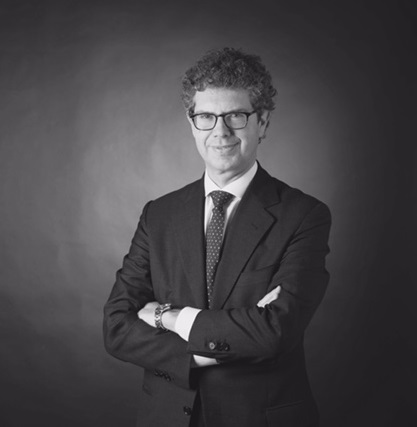
 045 802 8691 (VR) 0444 393931 (VI)
045 802 8691 (VR) 0444 393931 (VI)








